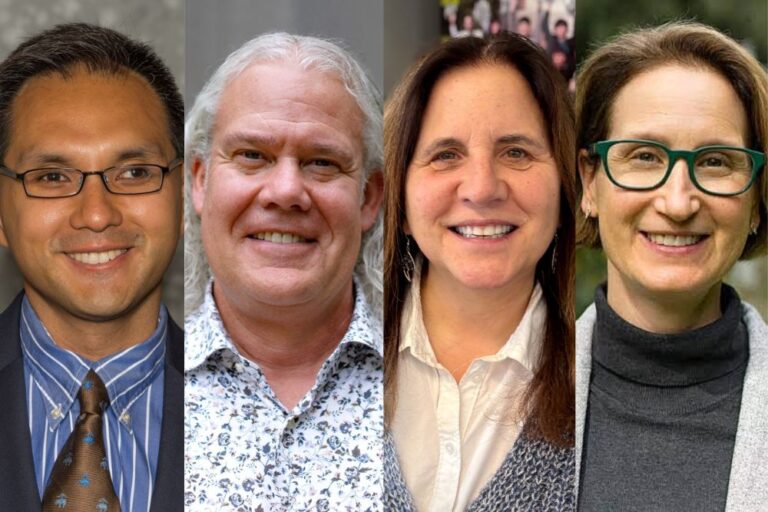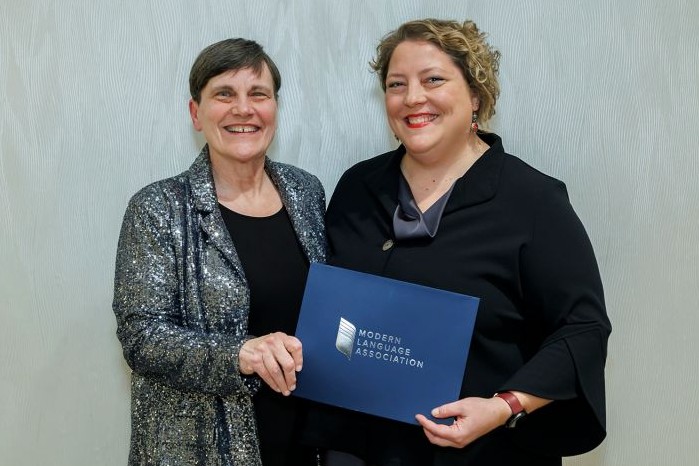
“Sustainable Community Development in Tanzania” (SCDT) is a six-week summer education abroad program that takes place in northern Tanzania. Started in 2013 by MSU’s Tanzania Partnership Program (TPP), SCDT brings together students and faculty from TPP member institutions. The institutions include Michigan State University (MSU), the University of Dar es Salaam (UDSM), Dar es Salaam College of Education (DUCE), and Sokoine University of Agriculture (SUA). The rural Tanzanian villages of Naitolia and Milola are the site of TPP activities. SCDT provides the opportunity for undergraduate and graduate students to learn about sustainable community development through hands-on practice. Gerald A. and Karen A. Kolschowsky generously fund the program and the students. Dr. Jonathan Choti of the Department of Linguistics, Languages, and Cultures (LiLaC) has served as Faculty Director of SCDT since 2015. The College of Social Science offers this program as a 6-credit course.
In 2023, SCDT ran from July 8, 2023-August 19, 2023 in Naitolia and Mswakini of Monduli District in northern Tanzania. The area is a wildlife corridor that lies at the edge of Tarangire and Lake Manyara National Parks. These pastoralist communities keep cattle, goats, and sheep. This society practices small-scale farming, but drought and wild animals frustrate their efforts. Herbivores such as elephants, giraffes, and zebras invade their farms. Thus, hunger and malnutrition are endemic problems in this society. The 2023 cohort implemented projects that addressed pressing issues in education, community health, food security, and youth empowerment.
Projects Exemplify Community Engaged Learning
The 2023 SCDT team was comprised of 19 students and 4 faculty members. MSU students included two graduate and seven undergraduate students. Their Tanzanian counterparts consisted of two graduate and eight undergraduate students. Faculty members included Dr. Jonathan Choti (MSU) Dr. Vicky Moshy (UDSM), Dr. Emiliana Mwita (DUCE), and Dr. Sharadhuli Kimera (SUA). Students collaborated with the community to design field experiential projects that address critical issues. Faculty created four student teams, with each team pursuing one issue using MSU’s Community Engaged Learning (CEL) approach.
The Youth Empowerment Project supported the construction of chicken coops for five families in Naitolia, a project which was requested by the youth of that community in 2022. The beneficiaries received training on the keeping of chickens, maintenance of coops, and financial literacy. Families that received coops in 2022 shared their experience, highlighting their successes: increased production of chickens and eggs, fewer instances of disease, and enhanced safety of chickens.

The Food Security Project built raised vegetable gardens for five households in Naitolia. The students first conducted a study to determine the challenges and successes of gardening, choosing to build raised gardens because they are easy to manage and retain water and soil nutrients for a long time. The students contracted a gardening expert from ECHO to facilitate a workshop for the gardeners which focused on pest and disease control, maintenance gardens, the merits of drought-resistant vegetables, and maintaining soil fertility. This project also donated tools and materials such as vegetable seedlings, watering cans, hoes, and covering nets.

Community Health and Education Issues
The Community Health Project addressed the issue of adolescent health in both villages. Group members conducted research to determine the level of knowledge about adolescent health in the communities, discovering that families are unable to provide basic hygiene products for teenagers while parents and teenagers lack basic knowledge about adolescent health. The team invited health personnel from local facilities to facilitate workshops that focused on the stages of puberty, the menstrual calendar, sexually transmitted infections, female circumcision, childhood pregnancy, early marriages, sanitation, and gender-based violence. The team also donated soaps and sanitary pads to teenage girls and renovated storage rooms to store the pads.
The Education Project addressed barriers to the provision of quality education at Mswakini Primary School. This team collected data from students, teachers, parents, the principal, and education officers through informant interviews, observations, focus group discussions, and secondary sources. The main problems included food insecurity, the under-utilization of teaching aids, poor infrastructure, an inadequate number of teachers, and overcrowded classrooms. Food insecurity was the biggest problem at the school, resulting in poor academic performance, dropouts, poor attendance, and reduced student involvement in learning activities. The team held meetings with school leaders, parents, and the local government. Parents contributed food for the lunch program at the school, and the education abroad team also donated enough food for the lunch program for a month. The group worked with the school committee, parents, and local government to establish bylaws governing food contributions. This team also hung teaching aids in classrooms to increase accessibility and utilization.
Both residents and students greatly benefited from the collaborations.



